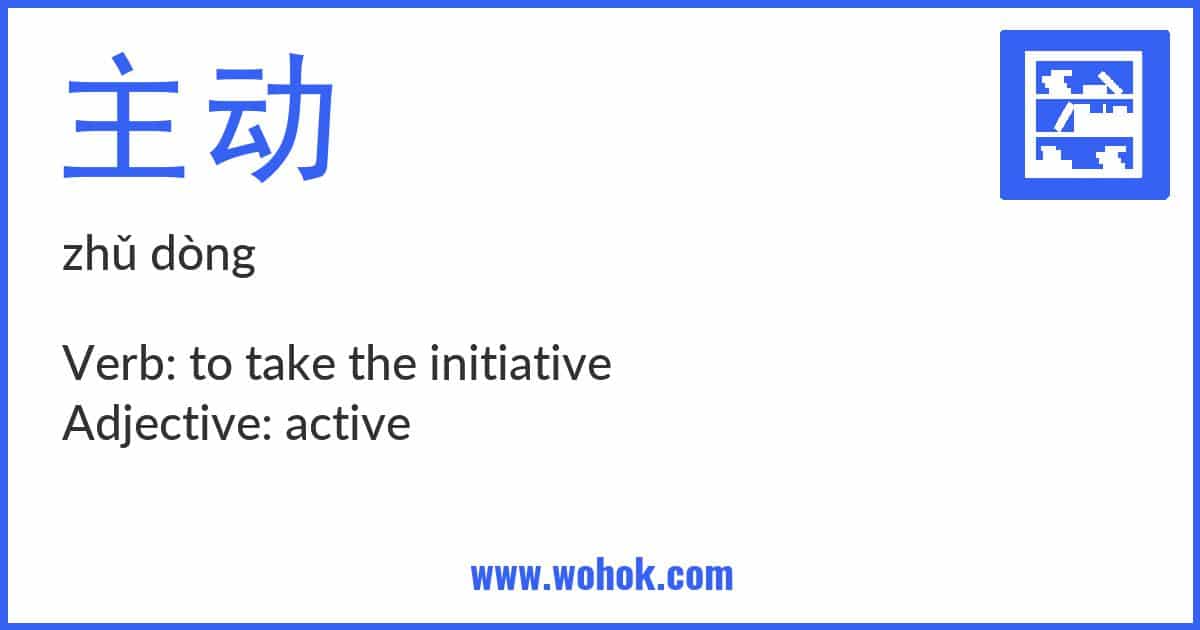The Chinese word 主动 means “initiative” or “proactive”. It is often used to describe someone who takes the lead in a situation, or who actively seeks out opportunities. For example, in a job interview, the interviewer might ask if the candidate is “主动” in their work, meaning whether they take the initiative to complete tasks and solve problems without being told to do so. In personal relationships, being “主动” can mean taking the first step to reach out and communicate with someone, rather than waiting for them to make the first move.
Translation
Verb: to take the initiative
Adjective: active
Pronunciation
Example Sentences
| Chinese | Pinyin | Engish |
|---|---|---|
| 我们应该主动了解客户的需求 | wǒmen yīnggāi zhǔdòng liǎojiě kèhù de xūqiú | We should take the initiative to understand the needs of our customers |
| 他主动帮助别人,受到了大家的赞赏 | tā zhǔdòng bāngzhù biérén, shòudào le dàjiā de zànshǎng | He took the initiative to help others and was praised by everyone |
| 她主动请客,让大家感到很温馨 | tā zhǔdòng qǐngkè, ràng dàjiā gǎndào hěn wēnxīn | She took the initiative to treat everyone and made everyone feel warm |
| 这个项目需要你主动承担更多的责任 | zhège xiàngmù xūyào nǐ zhǔdòng chéngdān gèng duō de zérèn | This project requires you to take the initiative to take on more responsibility |
| 我们应该主动学习新知识,不断提高自己 | wǒmen yīnggāi zhǔdòng xuéxí xīn zhīshì, bùduàn tígāo zìjǐ | We should take the initiative to learn new knowledge and constantly improve ourselves |
| 他主动和老板沟通,解决了团队的问题 | tā zhǔdòng hé lǎobǎn gōutōng, jiějué le tuánduì de wèntí | He took the initiative to communicate with the boss and solved the team’s problems |
HSK
主动 is part of HSK Level 4 in HSK 2.0. In the newer HSK 3.0 it is part of HSK Level 3.
Learning Card


